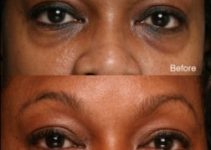You can probably relate to this scenario: your breath is perfectly okay during the day but nothing close to that can be said about the breath you wake up with in the morning and kissing your partner without brushing your teeth is simply unimaginable. If you do, you are one in millions of people who struggle with the problem. So, what causes bad morning breath and what can you do to get rid of it as well as prevent its recurrence for good? You are just about to find out all that and more.
What Causes Morning Breath?
The question “why do we have bad breath in the morning?” bothers so many people.
According to Dr. Anthony Komaroff, Professor of Medicine at Harvard Medical School, morning breath is usually caused by the bacteria that live in your mouth. These bacteria get their foods from the particles found in our mouth – on the gums, tongue, throat, and between the teeth – the digestion of which results in foul-smelling sulfides and amines.
When sleeping, we produce less saliva and consequently the mouth dries out. When that happens, the culprit bacteria proliferate, acting on the tiny food particles that buildup on the soft tissues in your mouth. Remember that saliva serves as a natural way for the body to wash down food particles and bacteria.
The following factors can heighten the intensity and frequency of bad morning breath:
- Snoring/breathing through the mouth: People who breathe through the mouth at night are more likely to develop bad morning breath than those who don’t and so does those who snore. This is because these habits make your mouth more prone to drying out, thus creating an environment more suitable to the activities of the odor-producing bacteria.
- Medications: Some medications can also increase the risk of bad breath in the morning by reducing the rate at which saliva is produced and thus setting stage for bacterial activities that result in the offensive smell. This is a common cause of halitosis among older people as they tend to be on medications.
- Smoking: The health effects of smoking are far reaching. In addition to all the damage tobacco smoke does to smoker’s body, it can cause your mouth to get dryer while at the same time raising your mouth’s temperature, to the delight of oral bacteria. Smoking also puts your sinuses at higher risk of infection.
- Post nasal drainage due to allergies and other factors: When mucus drips down the back of your throat, a condition known as postnasal drip or drainage, it serves as a food source for the bacteria that produce volatile sulfur compounds, leading to bad breath.
- Poor dental hygiene: When you don’t brush and floss your teeth enough, food particles and nasty bacteria buildup in your mouth, which can then make morning breath more likely to occur not to mention all-day halitosis in worst scenarios. Dental or gum diseases can also cause an explosion of bacteria in your mouth.
How to Get Rid Of Morning Breath and Prevent its Recurrence
Morning breath and kissing don’t auger so well. Your boyfriend or girlfriend may even be averse to morning sex due to it. While masking the breath is helpful, the ultimate long-term goal should be getting rid of the problem for good; that is, taking measures to ensure that you do not have bad breath in the morning to start with. Here are some ways to help you tackle the “dawn halitosis” problem:
Up Your Oral Care
- Brush and floss your teeth after every meal and most importantly before going to bed to prevent buildup of food particles and volatile chemicals-producing bacteria between your teeth. Brush for not less than 2 minutes each time. If you can get your hands on electric toothbrush, it is an especially great option, says the WebMD.
- Brush your tongue with a soft-bristle toothbrush or use a tongue scraper too. The back of the tongue is an often over-looked harbor for mouth bacteria and food debris, contributing to 85% of all cases of bad breath, says Irwin Smigel, DDS, the founder of The American Society for Dental Aesthetics. If you are struggling with bad breath in the morning, start by ensuring that you not only brush your teeth but also the tongue.
- Visit your dentist regularly. Dr. Komaroff recommends having your teeth cleaned at least two times each year.
Rinse With a Mouthwash
Rinsing with mouthwash is another effective yet easy home remedy for morning breath. Unlike a toothbrush, a mouthwash reaches the soft tissues areas of the mouth such as throat, inside of cheeks, etc., neutralizing the breath causing compounds.
How to get rid of morning breath with a mouthwash is pretty straightforward: simply swish the specified amount of the mouthwash product of your choice for at least half a minute, then spit it out.
The only downside with most mouthwash products is that they are more of a temporary fix than a morning breath cure. To address this challenge, the WebMD suggests looking for antibacterial mouthwashes and rinses e.g. TheraBreath Oral Rinse. These help to kill the bacteria found in the mouth and thus cure the problem of bad breath in the morning or otherwise while reducing the risk of cavities.
Still on the best mouthwashes for morning breath, ensure that the product you go for is alcohol-free and has a seal of approval from the relevant body e.g. American Dental Association.
Rinse Your Mouth with Vinegar
Vinegar can also help to inhibit bacterial proliferation in the mouth and thus stop bad breath in the morning. Here is how to use it to get rid of the problem:
- Add 1 tablespoon of vinegar in a glass of water.
- Swish the solution around your mouth, then gargle for a minute or so.
- Spit it out.
- Repeat this every day before bedtime until the breath returns to normal.
Gargle Baking Soda before Bedtime
Baking Soda or bicarbonate of soda as it is often sold on the counters is alkaline in nature and as such constitutes a great remedy for awful breath in the morning. By creating an alkaline environment, baking soda inhibits the activity of the oral bacteria responsible for the “dawn halitosis”.
Below is how to get rid of morning breath with baking soda:
- Mix a glass of water with 1 teaspoon of baking soda and then mix thoroughly.
- Gargle the mixture around your mouth for 1 minute or so just before bedtime.
- Spit it out. Skip rinsing your mouth for the best result.
Observe Your Dietary Habits Keenly
What you eat goes a long way in as far as your overall body health is concerned. While some foods e.g. apple, impart a positive effect on your breath, others do the exact opposite and could be a contributing factor to your waking up with a bad breath. Below are diet related tips that you can use to get rid of and prevent bad morning breath for good:
- Eat regular meals and avoid low-carb diets: According to the WebMD, extreme fasting, irregular meals, and low-carb diets can all lead to foul-smelling breath. When carbohydrates are not available in adequate quantities, the body begins breaking fat at a higher rate. The ensuing ketones production leads to what is referred to as “ketone breath”.
- Avoid “breath-killer” foods: Pungent foods such as garlic and onions are known to cause the breath to smell bad. Such foods are usually absorbed into the bloodstream and then expelled gradually via the lungs when breathing. They can thus contribute to the awful breath.
- Eat lots of fruits and vegetables: Apples help to clear desires from your teeth and eating one is a nice way to end your evening meal. The WebMD also recommends snacking on carrots and celery as a good way to remove food debris and stop breath problems. Chewing a parsley sprig also goes a long way in getting rid of morning breath. It contains chlorophyll that helps to neutralize and mask breath odors.
- Eat your breakfast as soon as possible: As already mentioned, morning breath is attributed to dry mouth and accelerated bacterial action on food debris in the mouth. Eating stimulates the production of saliva which in turn helps to combat bacterial action. What an easy tip on how to get rid of morning breath fast, albeit temporarily, than starting your day with a breakfast.
- Do away with coffee: Whether taken in the morning or at night, coffee leaves a lingering aroma that is difficult to clean from the back of your tongue. It can also dry out the mouth and set grounds for bad breath. Instead of coffee, take herbal or green tea and see if that will help to stop the morning breath.
- Go slow on alcohol: Alcohol and wine have a knack for drying effect on your mouth and if you sip a glass or two before bed time, you likely know your culprit.
Use Oil Pulling To Stop Morning Breath for Good
This plaque and oral bacteria fighting method has been used in India since time immemorial. The idea is to use oil to pull out the microorganisms in your mouth. Here is how to get rid of morning breath using the oil pulling method:
- Pour a teaspoon of coconut oil (sesame and sunflower oils are also idea for this purpose) into your mouth.
- Swish it all around your mouth for 20-25 minutes.
- Spit it out. The bacteria and other microorganism adhered to the oil will go out with it, leaving your mouth fresh and healthy. What an easy remedy to help you wake up without morning breath?
Keep the Mouth Wet
Keeping the saliva flowing is the key to effective management and prevention of bad breath. Below are helpful tips to help you achieve this:
- Drink plenty of water before bedtime and throughout the night if possible.
- Chew sugarless gum. This helps to free up food debris and dead cells stuck in your teeth, gums, and tongue, while stimulating the flow of saliva. This is an especially effective remedy for bad breath if done shortly after taking your meals. Flavored varieties will also help to neutralize and mask the A.M. smell.
Grab Some Mint for Fresh Breath without Brushing Your Teeth
One of the best herbal remedies for morning breath and bad breath (halitosis) in general, mint provide temporary but effective relief from the vagaries of mouth bacteria. It naturally freshens your breath almost instantly – without necessarily brushing your teeth – making your mouth ready for that morning kiss from your partner.
Avoid Mouth-Drying Medications
You may not have a choice, but if possible try switching from mouth drying medications such as antihistamines (e.g. Benadryl) for other alternative medications. If you are on any such drugs, ask your doctor to advice you accordingly.
Give Tobacco Products a Cold Shoulder
This may sound as a so-hard-to-crack trick on how to get rid of morning breath but if you can stop smoking or chewing tobacco products, then you will have made a great leap towards fresh breath.
References
- Ask Dr. K: How can I prevent my bad morning breath?
- Everyday Health: Why Do We Have Morning Breath?
- Go Ask Alice: Kissing with “morning breath”
- LifeHack: 10 Secrets To Fresh Morning Breath Everyone Should Know
- Medical Daily: Your Morning Breath, Explained: What Causes It And How You Can Treat It
- WebMD: Change Your Breath From Bad to Good

